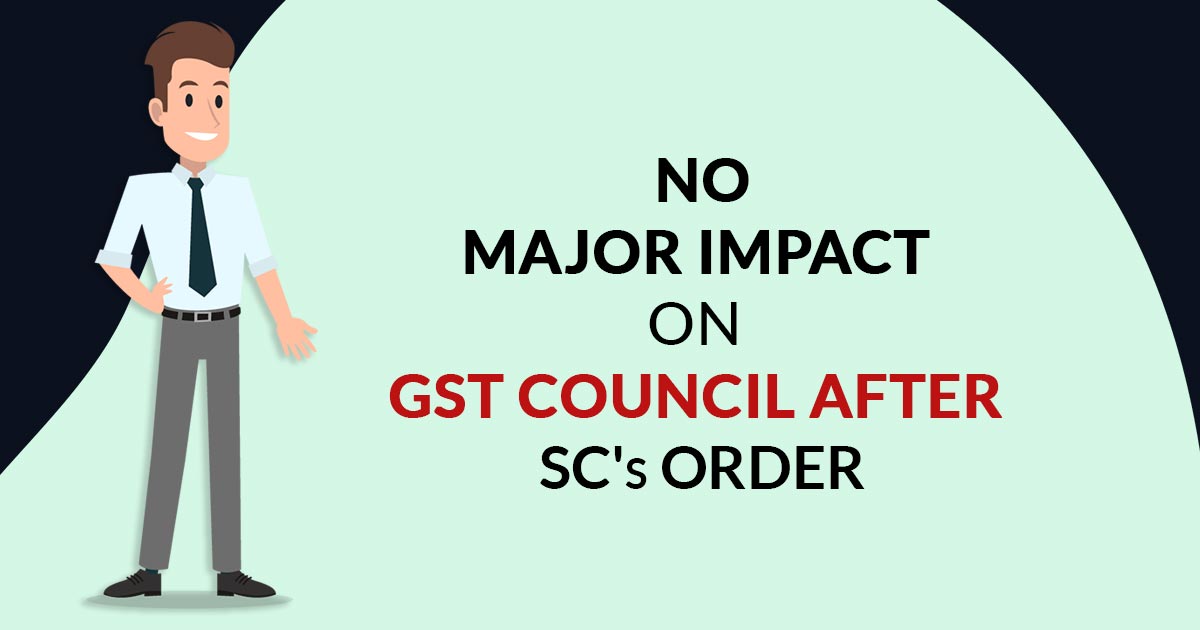
The architecture and heads of the GST council stay unchanged even after the Supreme courts ruling, three officials linked with the indirect tax regime specified that the council might learn the observations in its subsequent meeting.
The apex court specified that the suggestions of GST officials were not binding on either the Union government or the states as the supreme court mentioned that the clear, no changes in the GST laws are expected.
“The Supreme Court in the context of the issue (tax issue related to ocean freight) has observed that the recommendation of the GST Council has persuasive value for primary legislation, and its recommendations are binding in so far as subordinate legislation is concerned, such as the issue of notification, framing of rules, prescribing rates and taxes, etc,”
The GST Council does furnish suggestions to the central government and the states on several matters, under the article 279A, the second official described. The same article mentioned that the Council will be assisted by the requirement for the harmonized framework of GST and towards the development of “a harmonized national market” for goods and services, he said.
The same needs a collaborative method. In the former 5 years, all the decisions of the council were unanimous. “That was also accepted by the dissenting states. Hence, in the spirit of cooperative federalism, the Council’s recommendations have been accepted by the Centre and states.”
The department is been empowered with Article 279A on the cases concerned with GST laws, principles of levy, apportionment of GST levies on interstate supplies, principles relating to place of supply, GST rates, and special provisions with respect to specific states, the first official mentioned.
The same suggestions came to post to the deliberation in the official in which all the states arrive. The centre and states shall have suggested via normal legislative process beneath the corresponding acts.
In making its observations, the Supreme Court only elaborated on this mechanism. There is nothing new that this judgment lays down in terms of the GST, does not affect the way GST has been functioning in India, nor does it in any way alter the existing framework of GST,” he added.
“The apex court said that the suggestions of GST Council on the primary GST law have only a persuasive value, which no doubt is a correct interpretation of the constitutional construct of GST, he said, requesting anonymity.”
The Supreme Court held that the GST Council’s recommendations on the primary GST law possess only a persuasive value, which, I am sure, is a correct interpretation of the GST Constitution, he said, requesting anonymity.
Towards the concern of the dispute for the tax on the ocean freight to the supreme court was a needed observation.
Despite the appreciation of the judgement on ocean freight in an individual case, the context of the remarks regarding the GST Council does not make sense because there was never any doubt about its legal status, an anonymous second tax expert who works with a multinational consulting firm said on condition of anonymity. Since July 1, 2017, the Council has operated smoothly according to the same legal principle.
The expert species that GST will carry on to choose the decisions toward the true spirit of cooperative federalism and choose all the members on the board prior to attaining any outcome.









